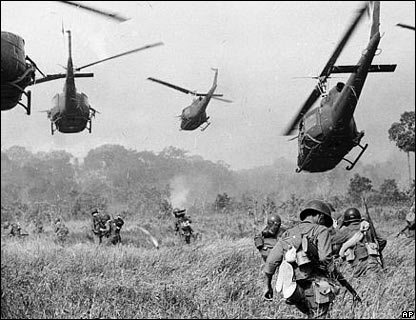Analysis of “Photograph from September 11” by Wislawa Szymborska
September 11, 2001 will be a date synonymous to everyone as the day the world as we know it changed for our generation and future generations. In Wislawa Szymborska’s poem ‘Photograph From September 11” she describes the emotions of just one horrific aspect of that day and has the reader remember the feelings they felt watching those poor people fall from the Twin Towers.
The simplicity of the poem is very engaging in that it is an event that everyone has a memory of in our generation, such as I am sure poetry wrote about the Vietnam War and World War II would have been a strong memory for people in those times. What I found appealing about the poem was that out of all the terrible events of that day she focused the poem on just one aspect of that day, and the one aspect people steered away from talking about. The images of people jumping from the World Trade Towers in New York was an image that everyone saw when they turned on their television that day and it was such a horrific thing to see that it really is one that no one will ever forget. Wislawa’s poem is so moving that it takes the person reading back to that day, her description of watching them fall and her narrative of what they must have been thinking during that fall.
I felt Szymborska was saying the images from television and photographs taken off these poor people falling has some how immortalized them in time. That they will remain that way, falling through the air stuck for eternity. The following lines I think describe this:
“The photograph halted them in life,
and now keeps them
above the earth toward the earth.” (4-6)
The interpretation and overall tone of the poem suggests that we as a society halted that day and we became like the people in the fall, halted in time on that day for eternity. From her description of the fall it was that the amount of time elapsed during the fall may have been short in reality but to them must have felt like an eternity to them and us watching:
“There’s enough time
for hair to come loose,
for keys and coins
to fall from pockets.” (10-13)
With time to see the earth below them approaching and for personal possessions to come loose which I thought could be a metaphor for them being stripped of personal possession to be bare and exposed to everyone and powerless to prevent it, which in a way was how we were as a western culture that day. During that fall the day to day feelings of how we look to others and our personal dignity and opinions of others play such an important role, but that day stripped everyone of that people found solace and peace in the arms of total strangers; everyone felt the same pain yet no one could describe it or hide from it.
I was not living in America on that dreadful day but the emotions of that day were felt by everyone world wide, and that is why I think this poem touched me as it took me back to home in Australia. Remembering turning on the television and that image of people falling being the first thing we saw and just the shock of it is something I will never forget. I believe that was Szymborska’s purpose with this poem, so we don’t forget what happened and to just take a moment and try to just wrap your mind around what they must have felt during that fall.
I thought the final lines of the poem were very touching and she shows her own feelings of hopelessness even as she writes the poem:
“I can do only two things for them—
describe this flight
and not add a last line.”(17- 19 )
From these last lines I feel she is trying to pay respect without describing how it ultimately ended for them. Like many that day her use of desperation in her words, mirrors how we felt, there was nothing we could do or say that was going to make the situation change or relieve the pain for the families who had lost loved ones. The use of the word “flight” is interesting; could it possible our (as in Western culture) flight of the end of feelings of being an impervious society? I found ‘Photograph From September 11’ touching and relative to the times of turmoil we are in right now as a country and for this to be wrote by a fellow non-American I found I could relate better as I know how much it not only affected Americans on that day but everyone world wide felt the same loss, pain and heartache. As Wislawa says “They’re still within air’s reach” (14), those images will stay within reach to us for us to remember what happened that day and the lives lost but also remind us we are not invulnerable.
Work cited
Szymborska, Wislawa, “Photograph from September 11” from Monologue of a Dog. 2005. Sep 12.2010.Web.www.poetryfoundation.org



